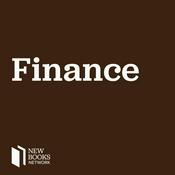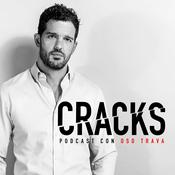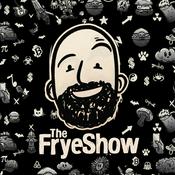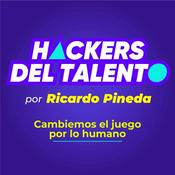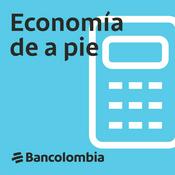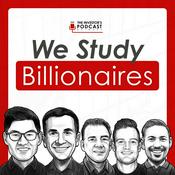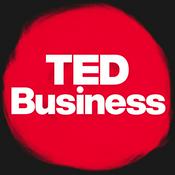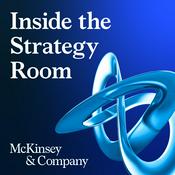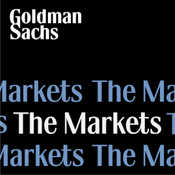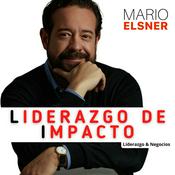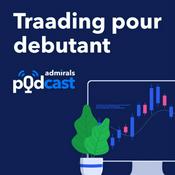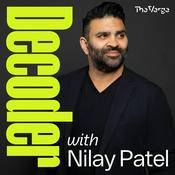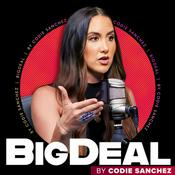444 episodios
Donald Chew, "The Making of Modern Corporate Finance: A History of the Ideas and How They Help Build the Wealth of Nations" (Columbia Business School Publishing, 2025)
18/2/2026 | 1 h 14 minIn The Making of Modern Corporate Finance: A History of the Ideas and How They Help Build the Wealth of Nations (Columbia Business School Publishing, 2025) Donald Chew profiles key figures in the development of modern corporate finance while emphasizing their counterintuitive lessons for shareholders, companies, and countries. He deals with such questions as: Why did the stagflation of the 1970s prove so painful and protracted? What explains the U.S. stock market’s forty-year run of 12 percent average annual returns? Why is Japan still mired in a decades-long recession? What accounts for the resilience of U.S. stock markets in the wake of COVID and the Fed’s interest rate hikes? Chew argues that answers to these questions lie ideas formulated and tested by finance scholars―notably, an efficient stock market in which prices reflect the long-run values of public companies and a market for corporate control that exerts pressure on management.
Learn more about your ad choices. Visit megaphone.fm/adchoices
Support our show by becoming a premium member! https://newbooksnetwork.supportingcast.fm/financePeter S. Goodman, "Davos Man: How the Billionaire Class Devoured Democracy" (Custom House, 2022)
09/2/2026 | 56 minDrawing on decades of experience covering the global economy, New York Times' journalist Peter S. Goodman profiles five representative Davos Men-members of the billionaire class-chronicling how their shocking exploitation of the global pandemic has hastened a fifty-year trend of wealth centralization. Alongside this reporting, Goodman delivers textured portraits of those caught in Davos Man's wake, including a former steelworker in the American Midwest, a Bangladeshi migrant in Qatar, a Seattle doctor on the front lines of the fight against COVID, blue-collar workers in the tenements of Buenos Aires, an African immigrant in Sweden, a textile manufacturer in Italy, an Amazon warehouse employee in New York City, and more in his book, Davos Man: How the Billionaires Devoured the World (Custom House, 2022).
Peter S. Goodman is the global economic correspondent for The New York Times, based in New York.
Caleb Zakarin is the Assistant Editor of the New Books Network (Twitter: @caleb_zakarin).
Learn more about your ad choices. Visit megaphone.fm/adchoices
Support our show by becoming a premium member! https://newbooksnetwork.supportingcast.fm/financeGregory T. Chin and Kevin P. Gallagher, "China and the Global Economic Order" (Cambridge UP, 2025)
02/2/2026 | 1 h 6 minChina and the Global Economic Order (Cambridge University Press, 2026) examines China's evolving relations with the Bretton Woods institutions (BWIs), specifically the International Monetary Fund and the World Bank Group from the 1980s through 2025. Using a combination of new qualitative findings and quantitative datasets, the authors observe that China has taken an evolving approach to the BWIs in order to achieve its multiple agendas, acting largely as a 'rule-taker' during its first two decades as a member, but, over time, also becoming a 'rule-shaker' inside the BWIs, and ultimately a new 'rule-maker' outside of the BWIs. The analysis highlights China's exercise of 'two-way countervailing power' with one foot inside the BWIs, and another outside, and pushing for changes in both directions. China's interventions have resulted in BWs reforms and the gradual transformation of the global order, while also generating counter-reactions especially from the United States.
Gregory Chin is an Associate Professor of Political Economy in the Department of Politics, and Faculty of Graduate Studies at York University (Canada), with a focus on the political economy of international money and development finance, China, Asia, the BRICS, and global governance.
Nomeh Anthony Kanayo, Ph.D. Candidate in International Relations at Florida International University, with research interest in Africa's diaspora relations, African-China relations, great power rivalry and IR theories.
Check out my new article https://doi.org/10.1016/j.sciaf.2025.e02699
Learn more about your ad choices. Visit megaphone.fm/adchoices
Support our show by becoming a premium member! https://newbooksnetwork.supportingcast.fm/financeRobert Yee, "The City's Defense: The Bank of England and the Remaking of Economic Governance, 1914-1939" (Cambridge UP, 2025)
30/1/2026 | 36 minIn The City's Defense: The Bank of England and the Remaking of Economic Governance, 1914-1939, Robert Yee examines how the City of London maintained its status as an international financial center. He traces the role of the Bank of England in restructuring the domestic, imperial, European, and international monetary systems in the aftermath of the First World War
Responding to mass unemployment and volatile exchange rates, the Bank expanded its reach into areas outside the traditional scope of central banking, including industrial policy and foreign affairs. It designed a system of economic governance that reinforced the preeminence of sterling as a reserve currency. Drawing on a range of archival evidence from national governments, private corporations, and international organizations, Yee reevaluates our understanding of Britain's impact on the global economic order.
Learn more about your ad choices. Visit megaphone.fm/adchoices
Support our show by becoming a premium member! https://newbooksnetwork.supportingcast.fm/finance- Winners Take All meets Nickel and Dimed: a provocative debunking of accepted wisdom, providing the pathway to a sustainable, survivable economy.
Confronted by the terrifying trends of the early twenty-first century - widening inequality, environmental destruction, and the immiseration of millions of workers around the world - many economists and business leaders still preach dogmas that lack evidence and create political catastrophe: Private markets are always more efficient than public ones; investment capital flows efficiently to necessary projects; massive inequality is the unavoidable side effect of economic growth; people are selfish and will only behave well with the right incentives.
But a growing number of people - academic economists, business owners, policy entrepreneurs, and ordinary people - are rejecting these myths and reshaping economies around the world to reflect ethical and social values. Though they differ in approach, all share a vision of the economy as a place of moral action and accountability. Journalist Nick Romeo has spent years covering the world's most innovative economic and policy ideas for The New Yorker. In The Alternative: How to Build a Just Economy (PublicAffairs, 2024), Romeo takes us on an extraordinary journey through the unforgettable stories and successes of people working to build economies that are more equal, just, and livable.
Stephen Pimpare is a Senior Fellow at the Carsey School of Public Policy at the University of New Hampshire.
Learn more about your ad choices. Visit megaphone.fm/adchoices
Support our show by becoming a premium member! https://newbooksnetwork.supportingcast.fm/finance
Más podcasts de Economía y empresa
Podcasts a la moda de Economía y empresa
Acerca de New Books in Finance
This podcast is a channel on the New Books Network. The New Books Network is an academic audio library dedicated to public education. In each episode you will hear scholars discuss their recently published research with another expert in their field.
Discover our 150+ channels and browse our 28,000+ episodes on our website: newbooksnetwork.com
Subscribe to our free weekly Substack newsletter to get informative, engaging content straight to your inbox: https://newbooksnetwork.substack.com/
Follow us on Instagram and Bluesky to learn about more our latest interviews: @newbooksnetwork
Support our show by becoming a premium member! https://newbooksnetwork.supportingcast.fm/finance
Sitio web del podcastEscucha New Books in Finance, Dinstinto y muchos más podcasts de todo el mundo con la aplicación de radio.net
Descarga la app gratuita: radio.net
- Añadir radios y podcasts a favoritos
- Transmisión por Wi-Fi y Bluetooth
- Carplay & Android Auto compatible
- Muchas otras funciones de la app
Descarga la app gratuita: radio.net
- Añadir radios y podcasts a favoritos
- Transmisión por Wi-Fi y Bluetooth
- Carplay & Android Auto compatible
- Muchas otras funciones de la app

New Books in Finance
Escanea el código,
Descarga la app,
Escucha.
Descarga la app,
Escucha.
